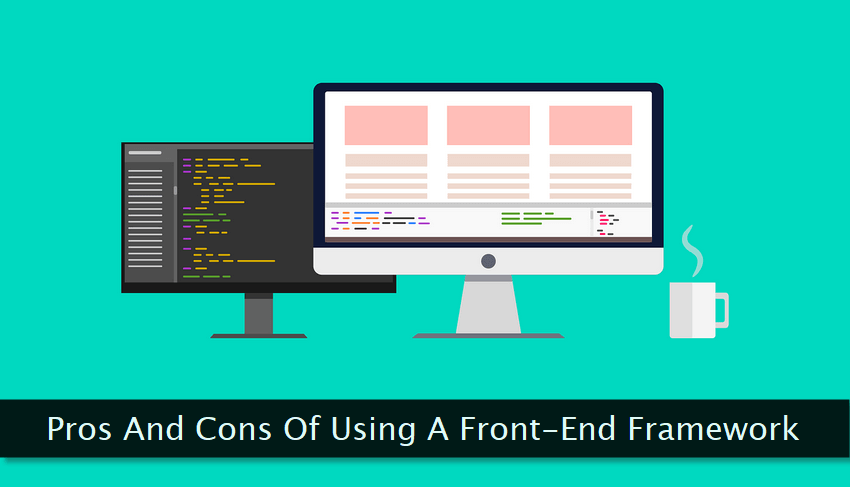Pros and Cons of Using a Front-End Framework
Posted on: by Rajeev EdmondsThere are literally hundreds of front-end frameworks developers can use for their projects. Some of them are quite popular and are actively maintained by a large community. If you're planning to use one, make sure you're aware of the pros and cons of these front-end frameworks.
They're used both as a standalone solution as well as an integration within a content management system. So, let's get started and compare the advantages and pitfalls.

These pros and cons may vary depending on the profiency of the end user. For a rookie, pros and cons may differ than what they are for a seasoned player. Let's first discuss the pros of using a front-end framework. So, here we go!
Pros of Using a Front-End Framework
Advantages of using front-end frameworks easily outnumber the disadvantages for small as well as large and complex projects. Following are some of the strongest pros of using them to build top notch web designs.
Agile development - This one is quite obvious. Instead of building from scratch, you get a ready-made framework which can be used to quickly come up with a working prototype. This saves your time and energy by many folds decreasing the overall development duration. This is one of the major reasons, front-end frameworks are getting popular among web developers.
Well tested - All popular front-end frameworks are not only developed by seasoned developers but are well tested in real life use cases due to their large user base. This results in stable and bug-free builds which perform seamlessly on all popular and major web browsers.
Community support - The more popular a front-end framework is; the better support you're bound to get. Whether it's a thread on the official support channel or a call on popular social media channels, developers can find existing users ready to help you anytime.
Custom builds - Popular front-end frameworks allow you to compile and generate a custom build to ensure you do not add unnecessary bloat you're never going to use in the project. This keeps your code lean avoiding unused components that may affect the efficiency of the entire code base.
Latest features - If you're one of the oldies still reluctant to dive into new features modern HTML and CSS has on offer, use one of the front-end frameworks and implement cutting-edge features out-of-the-box. This may add the polish your client may be asking for.
Pre-built themes - And last but not the least, one gets dozens of core theme templates which can be easily extended and customized to come up with a unique design in a quick time. Seasoned developers can take advantage of the reusable components which are part of these themes.
Now that we've seen pros of using a front-end framework, let's move ahead and see the cons too.
Cons of Using a Front-End Framework
As I said before, the number of advantages make these frameworks, a preferred choice for a large number of developers. Now, let's discuss the disadvantages of using a front-end framework.
Steep learning curve - This disadvantage is only applicable for large front-end frameworks with numerous features. Almost all of the highly popular frameworks can't be learned in quick time. One has to devote time and energy to learn every details and feature to take advantage of the power and flexibility to the fullest.
Update problems - The way, a developer may extend or use a front-end framework can directly affect the site's stability when it comes to updating the underlying framework files. It may or may not break the entire site leaving both the website owner and the developer in chaos.
Not for absolute beginners - If you're just starting front-end development and are still in the beginner's phase, a front-end framework may overwhelm you. It's better to start coding simple static files to gain confidence before you try using a large front-end framework.
Final Thoughts
If you're developing a simple few pages' website, naturally using a feature-packed front-end framework is going to be an overkill. On the other hand, if you have a large project in hand, using the same can be a good move. While using a front-end framework, make sure you're picking an actively maintained code base with enough reviews from actual users.
If you're using such a framework for your projects, we'd like to know about your hands-on experience.
All comments posted here are subject to the comment policy of this blog.